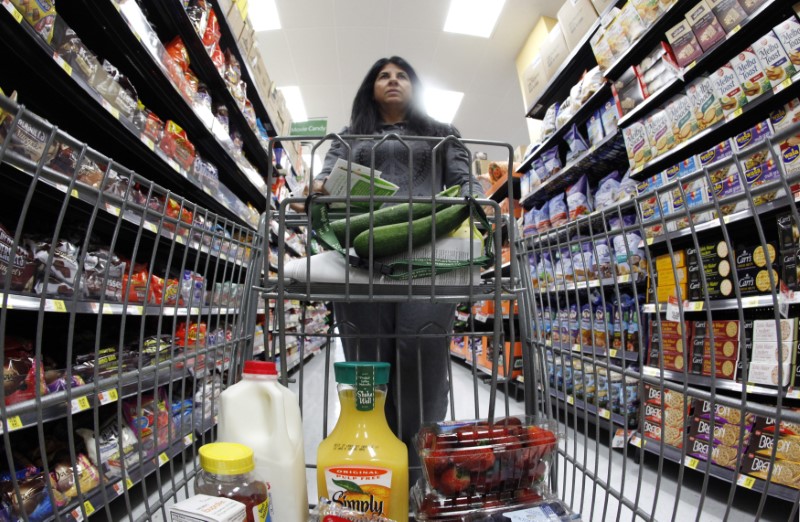WASHINGTON (Reuters) - Consumers expect to boost spending in the months ahead and voiced confidence they are more likely to find a job and less likely to lose one in a strong labor market, the New York Federal Reserve reported Monday in its latest monthly survey of consumer expectations.
Nearly 35 percent of the 1,300 heads of household included in the June poll said they were better off economically than a year go, a record in the four years the survey has been conducted.
The results bolster the current Fed outlook of an economy that continues to generate jobs despite tepid overall growth and some concern about a recent dip in inflation, improving chances the central bank can follow through with plans for a further interest rate increase later this year.
Though household expectations of inflation for the year ahead did dip slightly from the May survey, to 2.5 percent from 2.6 percent, respondents expect strong price increases of 2.8 percent over the coming three years. That's consistent with the Fed's current outlook that the recent weakness in inflation will prove temporary.
The survey also bolstered the view of continued strong consumption growth. Half of those polled said they expected to spend at least 3.3 percent more in the coming year, compared to median expected spending growth of 2.6 percent in the May survey. One-year-ahead expected earnings growth increased to 2.5 percent in the June survey from 2.2 percent in May.
Respondents also showed broad faith in the strength of the labor market, with a slight dip to 13.5 percent from 13.6 percent in the perceived probability of losing a job in the next year, and a jump to 59.2 percent from 56.7 percent in the probability of finding employment.
More than a fifth of respondents said they might leave a job voluntarily in the next year, up from 19.4 percent in May. Voluntarily job exits are considered a sign of a strong labor market that offers employees choices.

The online poll is designed to be a representative sample of the U.S. population. The New York Fed did not provide the margin of error for the poll.